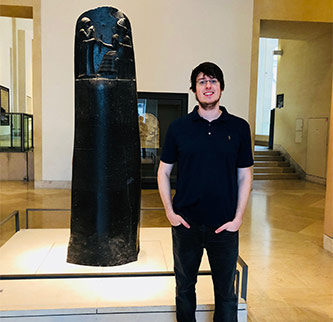Matt Mezeul '18

Matt Mezeul '18
Substance Abuse Counselor
In what ways do you feel your major in history helped to prepare you for your current career? Are there any skills that you developed as an undergraduate history major that are essential to your work? And can you give us an example (or examples) of this?
Although seemingly far removed from the field of substance abuse counseling, the subject of history has proved instrumental in my work. An appreciation of history seems, quite naturally, to lead to an appreciation of diversity and a self-awareness of one's ignorance, which in turn informs how I approach my work. There are myriad reasons young people turn to drugs—some of have experienced trauma before or during their drug use, while others may have fallen into addiction from the simple vagaries of life. The important thing is that I do not judge the individual based solely on my personal experience, and when I feel my judgment creeping on, I must be aware of it and determine if it is rooted in place that is overly personal rather than a place of open-mindedness and compassion. The whole of history seems to teach this simple principle.
Are there any other reflections on your history major or time in the History Department that you'd like us to include in your spotlight?
Simply put, my time as a history major was so much more fulfilling than I could have imagined before entering Brooklyn College. I am, unfortunately, quite cynical and have had many disappointing academic experiences in my life, but every history class I attended while at Brooklyn College offered something truly worthwhile and fruitful.
Which history course or courses were particularly meaningful to you during your time as a history major and/or have had a lasting influence? Why?
There are likely too many to mention, but I will try. I was definitely unenthused to enroll in a course called Introduction to the Study of History, but Professor O'Keeffe transformed what I had assumed a rather mundane subject into an illuminating experience. The openness of discussion and exposure to thought-provoking ideas created a welcoming environment I never minded entering. Also, the many classes I took with Professor Stern offered me interests that were hitherto unknown to me. I found the ancient Levant to be fascinating and the idea that there was agency in images groundbreaking. Although these classes are the ones that immediately come to mind, I can still remember aspects of each class I took, whether it be the oral history report with Professor Napoli that brought me closer to my father, learning that I actually found gender studies enlightening with Professor Banerjee, or the comfortable and stimulating classroom of Professor Fishman. Each class and each professor made a mark on me.






